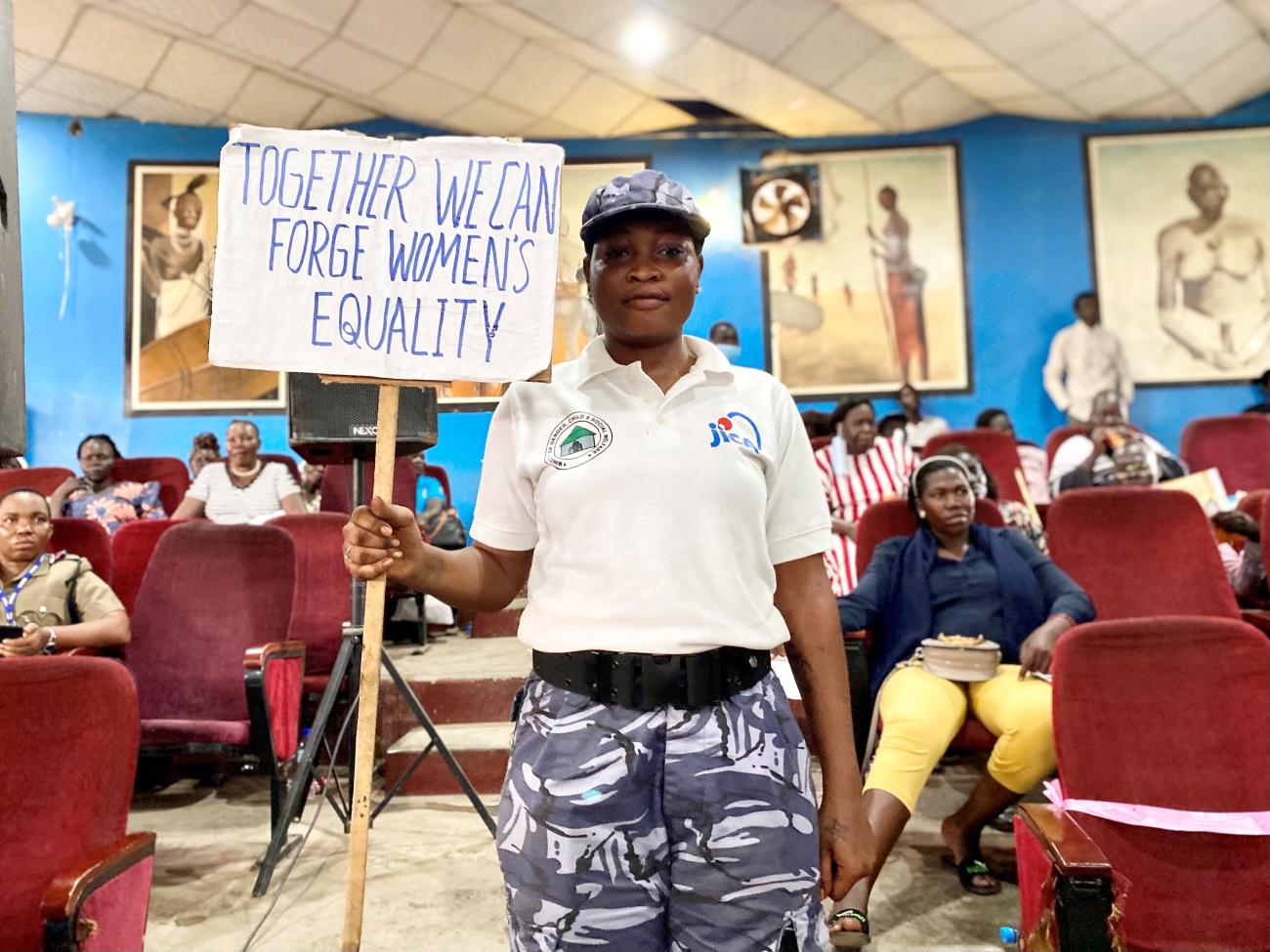Gender bias refers to the prejudice toward one gender over the other. One important theme for this year’s International Women’s Day was “Breaking the Bias”, which envisions a gender equal world free of bias and discrimination. International Women’s Day is marked yearly on 8th of March to celebrate the social, economic, cultural, and political achievements of women. This year, the celebrations did not only focus on breaking the gender bias but also on the importance that women play in sustainable development.
In Juba, a half-day event brought together over 1000 participants. Government officials, development partners, donors, non-governmental organizations, uniformed forces, and civil society came together to celebrate South Sudanese women. In addition to engaging speeches, the agenda also included poetry recitals on women’s rights, handicrafts exhibitions, and awards to South Sudanese women-led organizations, inspirational women leaders and female media persons.
All across South Sudan, the message for International Women’s Day was overwhelmingly clear: the gender bias needs to be broken. The theme of this year’s International Women’s Day implores us to challenge gender bias for equality. Around the world, women frequently face insidious violence that continues to prevent their full participation and equality. To remove these barriers for South Sudanese women, we must challenge the violence.
In South Sudan, the national theme for International Women’s Day was “Gender equality for future sustainability: promote and celebrate women and girls’ achievements and resilience” which went hand-in-hand with UN Women’s global theme “Gender equality today for a sustainable tomorrow”. Across South Sudan, women and allies came together to celebrate the immense accomplishments of women, reflect on how much work remains, and to make commitments to deepen and accelerate efforts to achieve gender equality.
The effects of climate change are particularly visible in South Sudan. Floods in vast areas of the country have left many at risk of displacement and lack of access to basic services. Vulnerable populations, especially women and children, are hit particularly hard by rising waters. In many South Sudanese homes, women are at the heart of the household’s nexus of water, food, and energy – and thus often know firsthand about the challenges and potential solutions in these areas. Women are the most convincing advocates for the solutions they need, so they should be at the forefront of decision-making on sustainable development and climate change mitigation.
The UN is committed to standing alongside the women of South Sudan, and to put their priorities and experiences at the center of its work.











